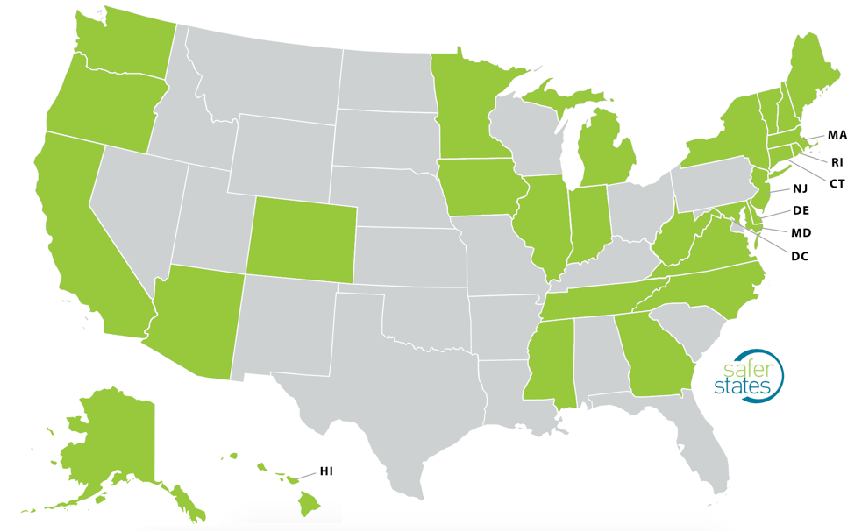Chemycal has been acquired by 3E
Learn MoreChemycal has been acquired by 3E
Learn MoreDiscover how Chemycal PRO helps you boosting your regulatory monitoring:

(Portland, OR) – In an effort to fill regulatory gaps left by the federal government, states are stepping up to protect public health from harmful chemicals, according to an analysis by
With the Trump EPA rolling back environmental protections, states are taking the lead to protect their residents from harmful chemicals, particularly PFAS chemicals. Last year, the state of Washington passed restrictions on PFAS in food packaging and firefighting foam and this year, at least 13 states are considering similar legislation. These actions come in the wake of serious failures by the EPA to protect drinking water or provide meaningful action that would warn communities about exposure or provide adequate funding for cleanup.
“As the Federal EPA falters and drags its feet, states are on the front line of protecting citizens from toxic chemicals by enacting strong
The trend to eliminate flame retardants continues in this session with several states introducing measures to eliminate these harmful chemicals from furniture, children’s products, and mattresses, harmonizing with policy recently adopted in California. Others are focusing their attention on eliminating toxic flame retardants from electronics a year after the Consumer Product Safety Commission recommended a similar ban and advised manufacturers find safer alternatives.
CONTINUE READING ON saferchemicals.org
2013 © MyChemicalMonitoring. ALL Rights Reserved. About Us | Terms and Conditions